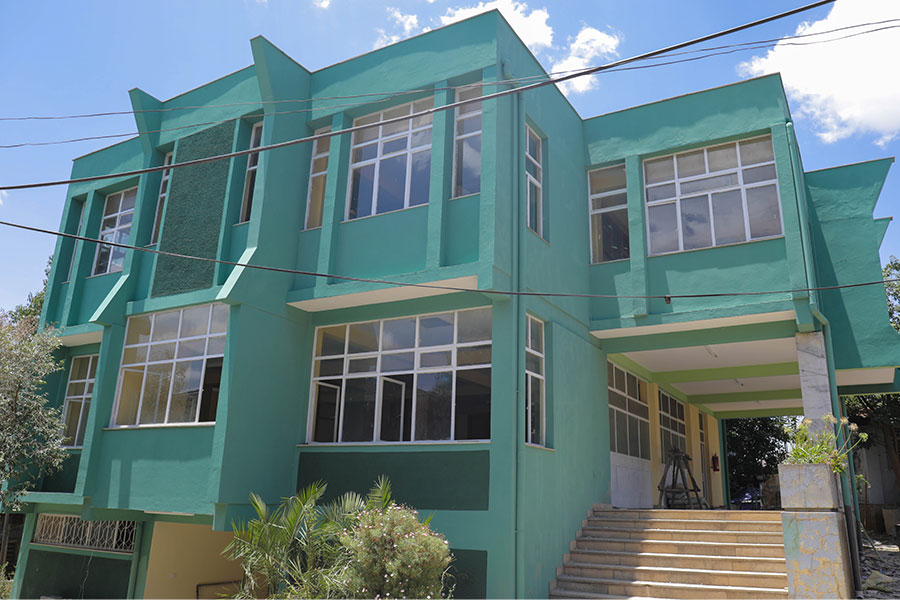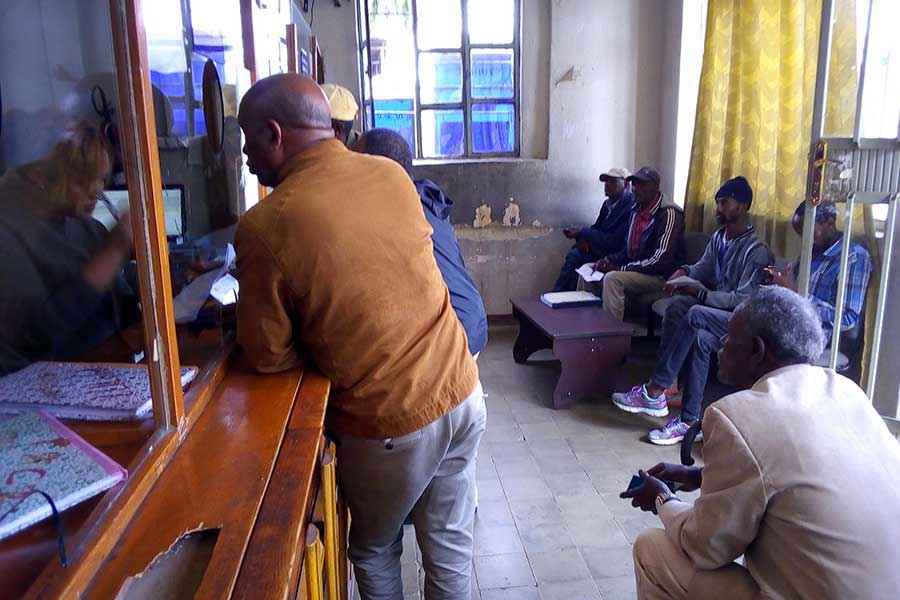
Fortune News | Mar 23,2019
The federal government has started writing a directive in the hope of bringing about a stringent and speedy procurement process. Drafted by the Public Procurement & Property Administration Agency, it will consider raising the bid bond value requirement and reducing the bid validity date.
The initiative of revising the tender process came after the Public Procurement & Property Disposal Service tabled a proposal following successive bid failures. The Service has conducted an assessment and evaluated the failed procurement processes from last year. Due to the multiple futile attempts, the country is currently forced to import wheat bought through direct procurement without a bidding process.
The latest bid attempt to buy 600,000tn of wheat failed after two companies were hired to supply the grain for 117 million dollars. In November, the Service awarded Rosentreter Global Food Trading to supply 400,000tn for market stabilisation and Martina Mertens to import 200,000tn of wheat for emergency assistance.
After they were awarded the contract, the companies did not show up.
"It wouldn't be wrong to say that we fail in our procurement process," said Eyob Tekalign (PhD), state minister for Finance. "Our procurement procedure has many serious problems."
The study conducted by the Service outlined that the long bid validity date is pushing away potential bidders due to the volatile nature of wheat prices in the global market. It also indicated that the lower bid bond value leads to the participation of companies that are not capable of taking the contract and are likely to disappear after being awarded.
While preparing the proposal, the Service took the experiences of the Ethiopian Sugar Corporation in buying sugar and the World Bank's procurement guidelines into account, according to Turufat Negash, advisor to the director-general of the Service.
The Service tabled the proposal to its board suggesting to raise the bid bond value and reduce the current bid validity period by three-fold. It also proposed to consider a suitable period for the procurement of wheat, such as when the commodity has a lower price in the international market. The board approved the proposal and passed the case to the regulatory agency to prepare a legal framework.
To apply these revisions, there is a need for amending the existing law, according to Tsewaye Muluneh, director-general at the Service, which makes procurements on behalf of over 180 public offices and universities.
The nation's maximum bid security value requirement is half a million Birr, while the maximum bid validity date offered by bidders is designated as 30 days.
When the Service announces a bid for a wheat procurement, which normally takes four months, at least five dozen companies buy the bid document, however less that a fifth of them submit offers. While issuing a bid, the Service requires bidders to deposit 2,000 dollars as a bid security.
The directive drafting process needs careful consideration and the involvement of experienced experts, according to Haji Ibsa, director general at the Agency.
Raising the bid bond has its merits and disadvantages at the same time, according to Haji.
"It'll attract strong companies but might discourage local suppliers from taking part in bidding processes," he said. "Thus, we need to draft the directive carefully after conducting a study and properly consulting with parties involved in the process."
Wheat is a political commodity in Ethiopia, which imported 1.7 million tonnes of wheat two years ago through the Service to be used for market stabilisation and for the 11 million people who are in need of food aid. The number of people who need emergency food assistance is projected to rise due to the Novel Coronavirus (COVID-19) pandemic, various conflicts in different parts of the country, the war in Tigray and the desert locust infestations.
Only solving these issues will not address the problems in the process, according to a person who closely follows wheat tenders.
This individual mentioned the involvement of the Ethiopian Shipping & Logistics Services Enterprise in the process as another factor contributing to the problem by discouraging international suppliers from taking part in the process. The Enterprise charges five dollars a tonne higher than the international shipping companies, added this same person.
"On top of that, it's operating with vessels rented from brokers and gives uncompetitive services," said the individual.
Even after the wheat arrives at the port, the Enterprise requires the government body that buys the wheat to bring dollars for the clearance process, which takes a longer time to pass through the central bank, leading to a further delay at the port, he added.
Since the grain is in the global commodity market, five to seven days is enough for the entire process, according to him.
PUBLISHED ON
Mar 06,2021 [ VOL
21 , NO
1088]

Fortune News | Mar 23,2019

Fineline | Feb 08,2020

Fortune News | Mar 27,2021

Radar | Apr 13,2025

Fortune News | Mar 20,2021

Covid-19 | Aug 08,2020

Viewpoints | Nov 30,2019

Commentaries | Dec 04,2022

Fortune News | Jun 27,2020

Radar | Oct 12,2019

Dec 22 , 2024 . By TIZITA SHEWAFERAW
Charged with transforming colossal state-owned enterprises into modern and competitiv...

Aug 18 , 2024 . By AKSAH ITALO
Although predictable Yonas Zerihun's job in the ride-hailing service is not immune to...

Jul 28 , 2024 . By TIZITA SHEWAFERAW
Unhabitual, perhaps too many, Samuel Gebreyohannes, 38, used to occasionally enjoy a couple of beers at breakfast. However, he recently swit...

Jul 13 , 2024 . By AKSAH ITALO
Investors who rely on tractors, trucks, and field vehicles for commuting, transporting commodities, and f...

Jun 28 , 2025
Meseret Damtie, the assertive auditor general, has never been shy about naming names...

Jun 21 , 2025
A well-worn adage says, “Budget is not destiny, but it is direction.” Examining t...

Jun 14 , 2025
Yet again, the Horn of Africa is bracing for trouble. A region already frayed by wars...

Jun 7 , 2025
Few promises shine brighter in Addis Abeba than the pledge of a roof for every family...